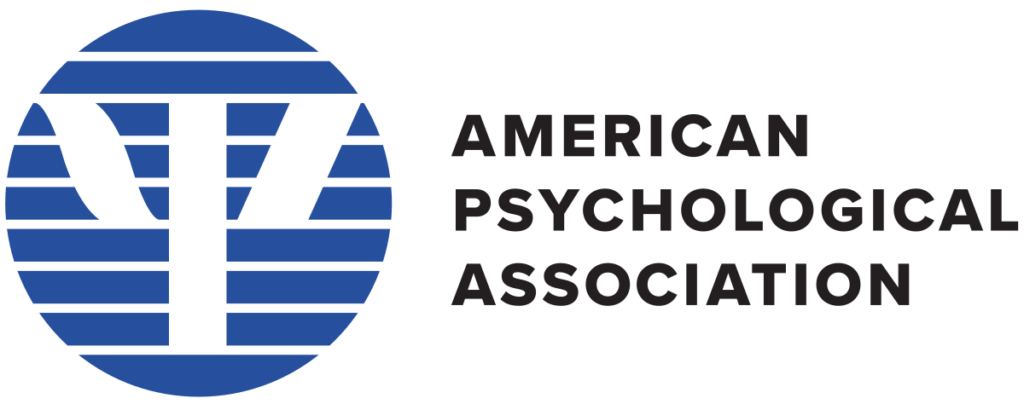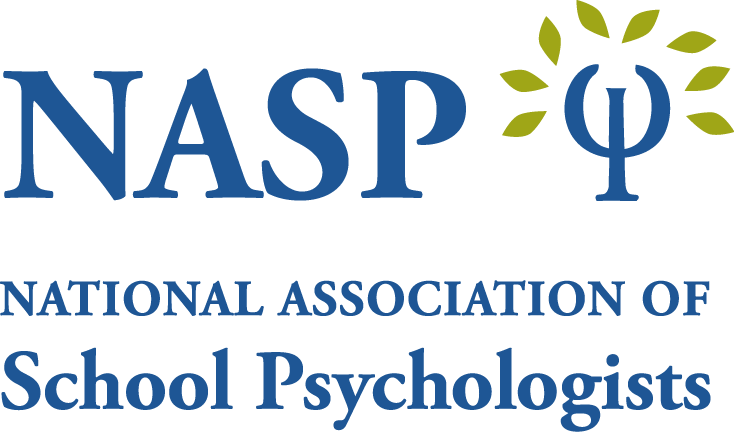
Robert Volpe
PhD
Professor; Director, School Psychology PhD Program Applied Psychology
YOU ARE BOUVÉ

Northeastern University’s Doctoral Program in School Psychology is designed to prepare students as leaders in science and practice within the field of school psychology.
Program graduates are expected to assume leadership roles in academia and elementary and secondary schools, where they will apply their training to promote positive social change through research and practice.


The program is deeply committed and strives to increase the representation of students from historically underrepresented backgrounds. Central to our training model is an emphasis on cultural competence — understanding and addressing the influences of race, culture, and gender on children’s learning, behavior, and development.
As an urban institution, Northeastern’s program seeks students who are motivated to make meaningful contributions in urban school settings. A commitment to social justice is central to our mission of strengthening schools’ capacity to support all students equitably.
Although our program draws from multiple theoretical orientations that encompass the scope of school psychology, our program is grounded in social ecological and behavioral frameworks. The program’s orientation emphasizes observable relations, data-based decision making, and systematic problem solving. Coursework and supervised school-based training highlight this perspective, while also preparing students to work flexibly across diverse contexts.
Students are trained as scientist-practitioners; they conduct original research that advances knowledge in school psychology and educational science, design and deliver evidence-based academic and behavioral interventions and engage in interprofessional collaboration. This training spans individual, group, and systems-level work, always within a behaviorally oriented, outcomes-driven model.
Northeastern’s focus is on promoting health, resilience, and positive outcomes so that students are equipped to foster meaningful change in the communities they serve.
Each year we base our offers of admission on a variety of factors including potential match between prospective student and mentor. As such, we don’t plan in advance who will be accepting a student. In your application, you should indicate one or two faculty members that you see as a good match based on your research interests.
Degree type:
– School Psychology PhD
Modality:
– On-ground
– Full-time
Application Deadline: December 6
Credit Hours: 97 semester hours
Program Length: Typically 5-6 years from BA admission
Please Note: PhD students in the Bouvé College of Health Sciences may not request enrollment deferrals. If you are admitted for a given term but wish to be considered for a future term instead, you must re-apply to the program in order to be considered for admission and funding.
The PhD in School Psychology at Northeastern University is accredited by the Commission on Accreditation of the American Psychological Association and meets the “Guidelines for Defining ‘Doctoral Degree in Psychology’” as implemented by the ASPPB/National Register Designation Project.
Graduates of our program who decide to apply for licensure as a psychologist typically will meet the jurisdictional educational requirements for licensing. However, individual circumstances vary, and, there may be additional requirements that must be satisfied prior to being licensed as a psychologist, potentially including specific clinical practice supervision requirements at the advanced practicum, internship, and post-doctoral level.
Students should contact the state/provincial/territorial licensing board in the jurisdiction in which they plan to apply for exact information.
Each year we base our offers of admission on a variety of factors including potential match between prospective student and mentor. As such, we don’t plan in advance who will be accepting a student. In your application, you should indicate one or two faculty members that you see as a good match based on your research interests.
Additional information including links to jurisdictions is available on the ASPPB’s website. For questions about the PhD in School Psychology as it relates to doctoral psychology licensure, please contact Robert Volpe, PhD.
The PhD program in school psychology requires a total of 97 semester hours, including a full-year internship. Students entering with a Bachelor’s degree typically complete the program in 5-6 years. We prepare school psychologists who think systemically and who are aware of the profound effect culture and the environment has on the learning and emotional health of children.
Please see the program requirements in the university catalog.
Our students have a strong professional identity and social conscience. In addition, many of our alumni have assumed leadership roles in state and national organizations.
Consistent with the mission of the university, real-world projects, and work experiences are integrated into coursework throughout the program.
Our students learn how to work on teams in delivering services, and how to draw upon the rich resources of professionals from related disciplines.
We view ongoing support and feedback as critical for students’ learning and professional development. Faculty members take pride in mentoring and advising students and incoming students receive peer mentorship from advanced students.
A grade of B or higher is required in all coursework.
Sample curriculum, subject to change.
97 total semester hours required
Minimum 3.000 GPA required
Candidates for admission are expected to meet the following requirements:
Strong undergraduate record
Strong graduate record, if applicable
TOEFL or IELTS for applicants who do not hold a degree from a U.S. institution and whose native language is not English
GRE scores (optional)
Personal statement of prior experience and professional goals (Minimum 500 words)
Three letters of recommendation
Personal interview with faculty and current students

PhD
Professor; Director, School Psychology PhD Program Applied Psychology
It is preferable for prospective students to have an undergraduate major or minor in psychology. At a minimum prospective students should have taken the following undergraduate courses: (1) Introduction to Psychology; (2) Child Development; (3) Abnormal Psychology; and (4) Research Methods and Statistics. Prospective students should have prior experience working with children and conducting research.
The program faculty reviews your credentials to assess the likelihood of your successful completion of the program and your potential for contribution to the field of school psychology and the community at large.
Admission is based on the evaluation of demonstrated academic performance, quality of recommendations, previous relevant experience, and your fit within our program.
Students are accepted into the program based on undergraduate grades and GRE or MAT scores, which are reviewed by the program director. Applicants who do not hold an undergraduate degree from a U.S. institution and whose native language is not English must also take the TOEFL or IELTS.
Fieldwork training for the PhD Program in School Psychology consists of a 75-hour pre-practicum, a 200-hour practicum in a school, two years of advanced fieldwork (600 hours each year, or approximately 20 hours/week) in a school with the possible option to be in a non-school setting, and one year of an approved full-time, pre-doctoral internship, all with corresponding on-campus seminars where they receive university supervision and benefit from the experiences of their peers.
As its name denotes, the pre-practicum occurs prior to the practicum. Students complete the 75-hour pre-practicum in May and June in their first year of study. The purpose of the pre-practicum is for students to gain observational experiences and to learn about school ecology. In addition to school- based observational experiences, students participate in a one-semester hour pre-practicum seminar on campus, which is taught by one of the core school psychology faculty members.
Students complete 200 hours of field experience in school psychology during their second year in the program. Prior to beginning practicum, students must have a contract signed by their site and Northeastern University. Practicum begins in September and continues until the end of the public school year in June. Practicum supervision and mentoring must be provided by a state credentialed school psychologist with a minimum of three years of experience. Students should receive at least one hour of face-to-face supervision per week during their practicum.
Students should receive at least one hour of face-to-face supervision per week during their practicum. Students should complete between 3-6 assessments during their practicum year with at least two comprehensive psycho-educational assessments. The comprehensive assessments should include multiple reliable and valid methods that assess multiple domains of functioning, and the choice of instruments should be derived from the presenting concerns / referral questions.
Note: the second-year practicum experience for doctoral students involves less than half of the hours completed by students in our C.A.G.S. program in their second year. Doctoral students should not exceed the 200-hour guideline as this will have a negative impact on their research development and the demands placed on them by their challenging coursework.
Course Work: Practicum students in the PhD program will have already taken the following courses:
During the practicum year students will take the following courses, some of which have associated fieldwork (see requirements below*) that must be completed in a school-based field site:
Fall Semester
*Fall Course-Based Requirements
Spring Semester
For the Social, Emotional, and Behavioral Assesment Course, students are required to complete a comprehensive assessment including (a) systematic direct observations (b) teacher, student, and parent interviews, and (c) broad and narrow band rating scales.
For the Counseling Children and Adolescents course sequence, students (a) must be able to
counsel an individual and group for the semester and (b) write two comprehensive case
summaries (“treatment plans”) for each (See Portfolio Guidelines for details of the requirement).
For the Consultation course, students (a) must identify a teacher who would be willing to meet
four times and (b) implement strategies in the classroom
Students complete 600 hours of Advanced Fieldwork (each year) during years 3 and 4 of the program. Students typically meet the requirement by completing 20 hours of fieldwork over the course of the academic year (September-June). Fieldwork sites typically offer the opportunity for several different types of psychological services including assessment, intervention, consultation, and systems-level prevention. In all cases, the first 600-hour Advanced Fieldwork placement must occur in a K-12 school. Although it is possible for the second 600-hour Advanced Fieldwork (AFW) placement to be completed in a non-school setting, students who wish to pursue this in their second year of AFW must receive approval from the program faculty prior to applying to non-school sites. Decisions regarding whether students are able to pursue AFW placements in non-school sites will be made based on the breadth and depth of the student’s prior school-based experiences.
Field supervisors in school sites must have a Massachusetts educator’s license (certification) as a school psychologist and a minimum of three years of experience as a school psychologist. Practicum and Advanced Fieldwork supervision consists of a minimum of one hour per week, in a face-to-face format. In non-school sites, supervisors must be licensed health providers in the state of Massachusetts and a minimum of three years experience as a psychologist.
Students are enrolled in a seminar course, instructed by a certified school psychologist during the practicum year and a licensed psychologist during the Advanced Fieldwork years. The university supervisor maintains contact with the field supervisor through two site visits and phone calls when necessary. At the end of the year, the field and university supervisors determine if the student has progressed adequately in core areas and is ready for the subsequent fieldwork experience.
The following list includes examples of where current and former students have done their pre-doctoral internship.
Northeastern University’s School Psychology MS/CAGS and PhD Programs offer an optional concentration in Applied Behavior Analysis (ABA) that provides students with the opportunity to apply to sit for the BCBA exam upon completion of the concentration. This optional sequence includes additional coursework from Northeastern University’s Certificate Program in ABA under the direction of Dr. Nicole Davis. Three of the courses are already part of the regular school psychology curriculum (CAEP 6206 Learning Principles, CAEP 6328 Single Case Design, and CAEP 6347 Behavior Management).
Students take four additional online courses that are part of Northeastern University’s Certificate Program in ABA (CAEP 6326 Behavioral Concepts and Principles, CAEP 6327 Behavior Assessment, CAEP 6329 Service Administration, CAEP 6336 Systematic Inquiry in Applied Research). In addition, students have the opportunity to gain supervised experience hours by taking CAEP 8417 Intensive Practicum in ABA I and CAEP 8418 Intensive Practicum in ABA II. These two courses fulfill 50% of the required supervised experience hours. The ABA courses are independently offered by the School Psychology PhD Program and are not required for the program.
None of the online courses are permitted to substitute for courses in the required PhD curriculum. If students are interested in pursuing the ABA concentration, they should inform the ABA and School Psychology program directors of their interest at the start of the program because this choice will have implications for their coursework and fieldwork in year 1 of the program.
(i) Research
(ii) Ethical and legal standards
(iii) Individual and cultural diversity
(iv) Professional values, attitudes, and behaviors
(v) Communications and interpersonal skills
(vi) Assessment
(vii) Intervention
(viii) Supervision
(ix) Consultation and interprofessional/interdisciplinary skills
| Outcomes | 2015 – 2016 | 2016 – 2017 | 2017 – 2018 | 2018 – 2019 | 2019 – 2020 | 2020 – 2021 | 2021 – 2022 | 2022 – 2023 | 2023 – 2024 | 2024 – 2025 | Total | |||||||||||
|---|---|---|---|---|---|---|---|---|---|---|---|---|---|---|---|---|---|---|---|---|---|---|
| Total number of students with doctoral degrees conferred on transcript | 1 | 2 | 2 | 4 | 4 | 0 | 3 | 1 | 2 | 3 | 22 | |||||||||||
| Mean number of years to complete the program | 6 | 6 | 6 | 5.25 | 6.25 | 0 | 6 | 7 | 5.5 | 5.67 | 5.37 | |||||||||||
| Median number of years to complete the program | 6 | 6 | 6 | 6 | 6.5 | 0 | 6 | 7 | 5.5 | 6 | 6 | |||||||||||
| Time to Degree Ranges | N | % | N | % | N | % | N | % | N | % | N | % | N | % | N | % | N | % | N | % | N | % |
| Less than 5 years | 0 | 0 | 0 | 0 | 0 | 0 | 1 | 25 | 0 | 0 | 0 | 0 | 0 | 0 | 0 | 0 | 0 | 0 | 0 | 0 | 1 | 5 |
| In 5 years | 0 | 0 | 0 | 0 | 0 | 0 | 0 | 0 | 1 | 25 | 0 | 0 | 0 | 0 | 0 | 0 | 1 | 50 | 1 | 33 | 3 | 14 |
| In 6 years | 1 | 100 | 2 | 100 | 2 | 100 | 3 | 75 | 1 | 25 | 0 | 0 | 3 | 100 | 0 | 0 | 1 | 50 | 2 | 67 | 15 | 68 |
| In 7 years | 0 | 0 | 0 | 0 | 0 | 0 | 0 | 0 | 2 | 50 | 0 | 0 | 0 | 0 | 1 | 100 | 0 | 0 | 0 | 0 | 3 | 14 |
| In more than 7 years | 0 | 0 | 0 | 0 | 0 | 0 | 0 | 0 | 0 | 0 | 0 | 0 | 0 | 0 | 0 | 0 | 0 | 0 | 0 | 0 | 0 | 0 |
The program of study for each student is determined at the beginning of the program by the advisor in collaboration with the Program Director and the student. Those entering the program with prior graduate training should consult with their advisor to discuss the program of study requirements. Students who enter the program with prior graduate training may have modified research and fieldwork requirements. A minimum of 50 credits is required for students entering with advanced standing.
| Description | 2025 – 2026 First-Year Cohort Costs |
|---|---|
| Tuition for full-time students (in-state) | $45,000 |
| Tuition for full-time students (out-of-state) | $45,000 |
| Tuition per credit hour for part-time students (if applicable enter amount; if not applicable enter "N/A" ) | N/A |
| University/institution fees or costs | $376 |
| tional estimated fees or costs to students (e.g. books, travel, etc.) | $1000 |
| Outcomes | YEAR APPLIED FOR INTERNSHIP |
|||||||||||||||||||||
| 2015 – 2016 | 2016 – 2017 | 2017 – 2018 | 2018 – 2019 | 2019 – 2020 | 2020 – 2021 | 2021 – 2022 | 2022 – 2023 | 2023 – 2024 | 2024 – 2025 | |||||||||||||
|---|---|---|---|---|---|---|---|---|---|---|---|---|---|---|---|---|---|---|---|---|---|---|
| Time to Degree Ranges | N | % | N | % | N | % | N | % | N | % | N | % | N | % | N | % | N | % | N | % | ||
| Students who obtained APA/CPA-accredited internships |
2 | 100 | 2 | 67 | 3 | 60 | 2 | 100 | 1 | 100 | 3 | 75 | 1 | 100 | 1 | 100 | 2 | 100 | 0 | 0 | ||
| Students who obtained APPIC member internships that were not APA/CPA-accredited (if applicable) |
0 | 0 | 0 | 0 | 0 | 0 | 0 | 0 | 0 | 0 | 0 | 0 | 0 | 0 | 0 | 0 | 0 | 0 | 1 | 50 | ||
| Students who obtained other membership organization internships (e.g. CAPIC) that were not APA/CPA-accredited (if applicable) |
0 | 0 | 0 | 0 | 0 | 0 | 0 | 0 | 0 | 0 | 0 | 0 | 0 | 0 | 0 | 0 | 0 | 0 | 0 | 0 | ||
| Students who obtained internships conforming to CDSPP guidelines that were not APA/CPAaccredited (if applicable) |
0 | 0 | 1 | 33 | 2 | 40 | 0 | 0 | 0 | 0 | 1 | 25 | 0 | 0 | 0 | 0 | 0 | 0 | 1 | 50 | ||
| Students who obtained other internships that were not APA/CPA-accredited (if applicable) |
0 | 0 | 0 | 0 | 0 | 0 | 0 | 0 | 0 | 0 | 0 | 0 | 0 | 0 | 0 | 0 | 0 | 0 | 0 | 0 | ||
| Students who obtained any internship | 2 | 100 | 3 | 100 | 5 | 100 | 2 | 100 | 1 | 100 | 4 | 100 | 1 | 100 | 1 | 100 | 2 | 100 | 2 | 100 | ||
| Students who sought or applied for internships including those who withdrew from the application process |
2 | — | 3 | — | 5 | — | 2 | — | 1 | 0 | 4 | — | 1 | — | 1 | — | 2 | — | 2 | — | ||
| Outcomes | YEAR APPLIED FOR INTERNSHIP |
|||||||||||||||||||||
| 2015 – 2016 | 2016 – 2017 | 2017 – 2018 | 2018 – 2019 | 2019 – 2020 | 2020 – 2021 | 2021 – 2022 | 2022 – 2023 | 2023 – 2024 | 2024 – 2025 | |||||||||||||
|---|---|---|---|---|---|---|---|---|---|---|---|---|---|---|---|---|---|---|---|---|---|---|
| Time to Degree Ranges | N | % | N | % | N | % | N | % | N | % | N | % | N | % | N | % | N | % | N | % | ||
| Students who sought or applied for internships including those who withdrew from the application process |
2 | — | 3 | — | 5 | — | 2 | — | 1 | — | 4 | — | 1 | — | 1 | — | 2 | — | 2 | — | ||
| Students who obtained paid internships | 2 | 100 | 2 | 67 | 4 | 80 | 2 | 100 | 1 | 100 | 4 | 100 | 1 | 100 | 1 | 100 | 2 | 100 | 2 | 50 | ||
| Students who obtained half-time internships* (if applicable) |
0 | 0 | 0 | 0 | 0 | 0 | 0 | 0 | 0 | 0 | 0 | 0 | 0 | 0 | 0 | 0 | 0 | 0 | 0 | 0 | ||
* Cell should only include students who applied for internship and are included in applied cell count from “Internship Placement – Table 1"
| Outcomes | YEAR OF FIRST ENROLLMENT |
|||||||||||||||||||||
| 2015 – 2016 | 2016 – 2017 | 2017 – 2018 | 2018 – 2019 | 2019 – 2020 | 2020 – 2021 | 2021 – 2022 | 2022 – 2023 | 2023 – 2024 | 2024 – 2025 | |||||||||||||
|---|---|---|---|---|---|---|---|---|---|---|---|---|---|---|---|---|---|---|---|---|---|---|
| N | % | N | % | N | % | N | % | N | % | N | % | N | % | N | % | N | % | N | % | |||
| Students for whom this is the year of first enrollment (i.e. new students) | 3 | — | 3 | — | 2 | — | 2 | — | 2 | — | 3 | — | 3 | — | 2 | — | 3 | — | 3 | — | ||
| Students whose doctoral degrees were conferred on their transcripts | 3 | 100 | 3 | 100 | 0 | 0 | 1 | 50 | 2 | 100 | 0 | 0 | 0 | 0 | 0 | 0 | 0 | 0 | 1 | 50 | ||
| Students still enrolled in program | 0 | 0 | 0 | 0 | 0 | 0 | 0 | 0 | 0 | 0 | 2 | 67 | 3 | 100 | 2 | 100 | 3 | 100 | 3 | 100 | ||
| Students no longer enrolled for any reason other than conferral of doctoral degree | 0 | 0 | 0 | 0 | 2 | 100 | 1 | 50 | 0 | 0 | 1 | 33 | 0 | 0 | 0 | 0 | 0 | 0 | 0 | 0 | ||
| Outcomes | 2015 – 2023 |
|---|---|
| The total number of program graduates (doctoral degrees conferred on transcript) between 2 and 10 years ago | 20 |
| The number of these graduates (between 2 and 10 years ago) who became licensed psychologists in the past 10 years | 11 |
| Licensure percentage | 55% |

Northeastern’s School Psychology PhD Program is accredited by the Commission on Accreditation of the American Psychological Association (APA). Students who graduate from an accredited program are eligible for licensure.
Questions related to the program’s accredited status should be directed to the Commission on Accreditation:
Office of Program Consultation and Accreditation
American Psychological Association
750 First Street, NE
Washington, DC 20002
Phone: (202) 336-5979/E-mail: [email protected]
Web: www.apa.org/ed/accreditation

Northeastern’s School Psychology MS/CAGS Program is also fully accredited by the National Association of School Psychologists. For more information click on the following link: NASP Approved Programs
Both the MS/CAGS and PhD programs are distinct for a number of reasons, including strong faculty mentoring relationships with students, a supportive learning community, a rigorous curriculum with excellent applied training in both research and practice, an ecological and multicultural approach to learning with a focus on family, school and community systems, culture, and diversity, a strong network of practice sites for field placements in urban schools and academic medical centers, and opportunities to develop leadership skills.
No. Although most applicants to the program were psychology majors in college, some are not. Our program does require the following four undergraduate psychology courses as prerequisites:
(1) Introduction to Psychology
(2) Research Methods and Statistics (in psychology or in another social science field)
(3) Developmental Psychology
(4) Abnormal Psychology.
CAGS stands for Certificate of Advanced Graduate Study and is the equivalent to an Educational Specialist (EdS) or 6th year degree. Our program prepares students for National Certification in School Psychology (NCSP) and Massachusetts licensure in school psychology.